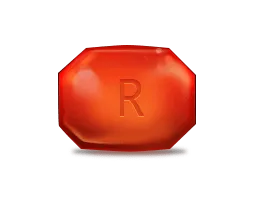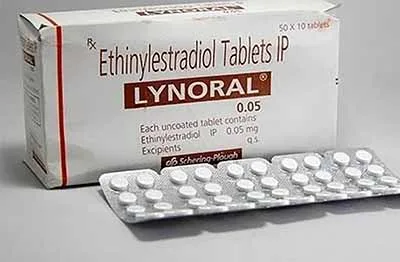- Your cart is empty
- Continue Shopping
Product
- Canadian Pharmacy Online Pharmacy | Online Canadian Pharmacy
- Need More Information Call Us 1-833-356-6337
Product description
INDICATIONS
Lozol is used for treating high blood pressure, swelling, or congestive heart failure due to excess fluid in the body. Lozol is a diuretic. It works by causing the kidneys to eliminate large amounts of water and salts.
INSTRUCTIONS
Use Lozol as directed by your doctor.
- Take Lozol by mouth with or without food. If stomach upset occurs, take with food to reduce stomach irritation.
- Lozol may increase the amount of urine or cause you to urinate more often when you first start taking it. To keep this from disturbing your sleep, try to take your dose before 6 pm.
- If you miss a dose of Lozol and you are taking 1 dose daily, take the missed dose if you remember the same day. Skip the missed dose if you do not remember until the next day. Do not take 2 doses at once.
Ask your health care provider any questions you may have about how to use Lozol.
STORAGE
Store Lozol at room temperature, between 68 and 77 degrees F (20 and 25 degrees C). Store away from heat, moisture, and light. Do not store in the bathroom. Keep Lozol out of the reach of children and away from pets.
MORE INFO:
Active Ingredient: Indapamide.
Safety information
Do NOT use Lozol if:
- you are allergic to any ingredient in Lozol
- you are unable to urinate or have problems urinating
- you are taking ketanserin.
Contact your doctor or health care provider right away if any of these apply to you.
Some medical conditions may interact with Lozol. Tell your doctor or pharmacist if you have any medical conditions, especially if any of the following apply to you:
- if you are pregnant, planning to become pregnant, or are breast-feeding
- if you are taking any prescription or nonprescription medicine, herbal preparation, or dietary supplement
- if you have allergies to medicines, foods, or other substances
- if you have heart, liver or kidney disease, or have low levels of sodium or potassium in your body
- if you have gout or lupus.
Some medicines may interact with Lozol. Tell your health care provider if you are taking any other medicines, especially any of the following:
- Nonsteroidal anti-inflammatory drugs (NSAIDs) (eg, ibuprofen) because they may decrease Lozol’s effectiveness
- Angiotensin-converting enzyme (ACE) inhibitors (eg, enalapril), diazoxide, or ketanserin because the risk of kidney problems may be increased
- Allopurinol, amantadine, antineoplastic agents (eg, cyclophosphamide), digitalis glycosides (eg, digoxin), lithium, or nondepolarizing muscle relaxants (eg, vecuronium) because the risk of their side effects may be increased by Lozol.
This may not be a complete list of all interactions that may occur. Ask your health care provider if Lozol may interact with other medicines that you take. Check with your health care provider before you start, stop, or change the dose of any medicine.
Important safety information:
- Lozol may cause drowsiness, dizziness, lightheadedness, or blurred vision. These effects may be worse if you take it with alcohol or certain medicines. Use Lozol with caution. Do not drive or perform other possible unsafe tasks until you know how you react to it.
- Lozol may cause dizziness, lightheadedness, or fainting; alcohol, hot weather, exercise, or fever may increase these effects. To prevent them, sit up or stand slowly, especially in the morning. Sit or lie down at the first sign of any of these effects.
- Patients who take medicine for high blood pressure often feel tired or run down for a few weeks after starting treatment. Be sure to take your medicine even if you may not feel “normal.” Tell your doctor if you develop any new symptoms.
- Your doctor may have also prescribed a potassium supplement for you. If so, follow the dosing carefully. Do not start taking additional potassium on your own or change your diet to include more potassium without first checking with your doctor.
- Lozol may cause you to become sunburned more easily. Avoid the sun, sunlamps, or tanning booths until you know how you react to Lozol. Use a sunscreen or wear protective clothing if you must be outside for more than a short time.
- Tell your doctor or dentist that you take Lozol before you receive any medical or dental care, emergency care, or surgery.
- Diabetes patients – Lozol may affect your blood sugar. Check blood sugar levels closely. Ask your doctor before you change the dose of your diabetes medicine.
- Lab tests, including electrolyte levels, may be performed while you use Lozol. These tests may be used to monitor your condition or check for side effects. Be sure to keep all doctor and lab appointments.
- Pregnancy and breast-feeding: If you become pregnant, contact your doctor. You will need to discuss the benefits and risks of using Lozol while you are pregnant. It is not known if Lozol is found in breast milk. Do not breastfeed while taking Lozol.
Side effects
All medicines may cause side effects, but many people have no, or minor, side effects.
Check with your doctor if any of these most common side effects persist or become bothersome:
Back pain; diarrhea; dizziness or lightheadedness when siting up or standing; headache; infection; nervousness; pain; runny nose; trouble sleeping; upset stomach.
Seek medical attention right away if any of these severe side effects occur:
Severe allergic reactions (rash; hives; itching; difficulty breathing; tightness in the chest; swelling of the mouth, face, lips, or tongue); chest pain; drowsiness; fatigue; irregular heartbeat; muscle cramps; numbness of your hands or feet; pounding in the chest; rapid heartbeat; unusual tiredness; urination problems; weakness; yellowing of the skin or eyes.
This is not a complete list of all side effects that may occur. If you have questions about side effects, contact your health care provider.
Need More Information? Call Us Toll Free: 1-833-356-6337
| MG | 2.5 mg, 1.5 mg |
|---|---|
| Package | 30 pills, 60 pills, 90 pills, 120 pills, 180 pills, 270 pills, 360 pills |






